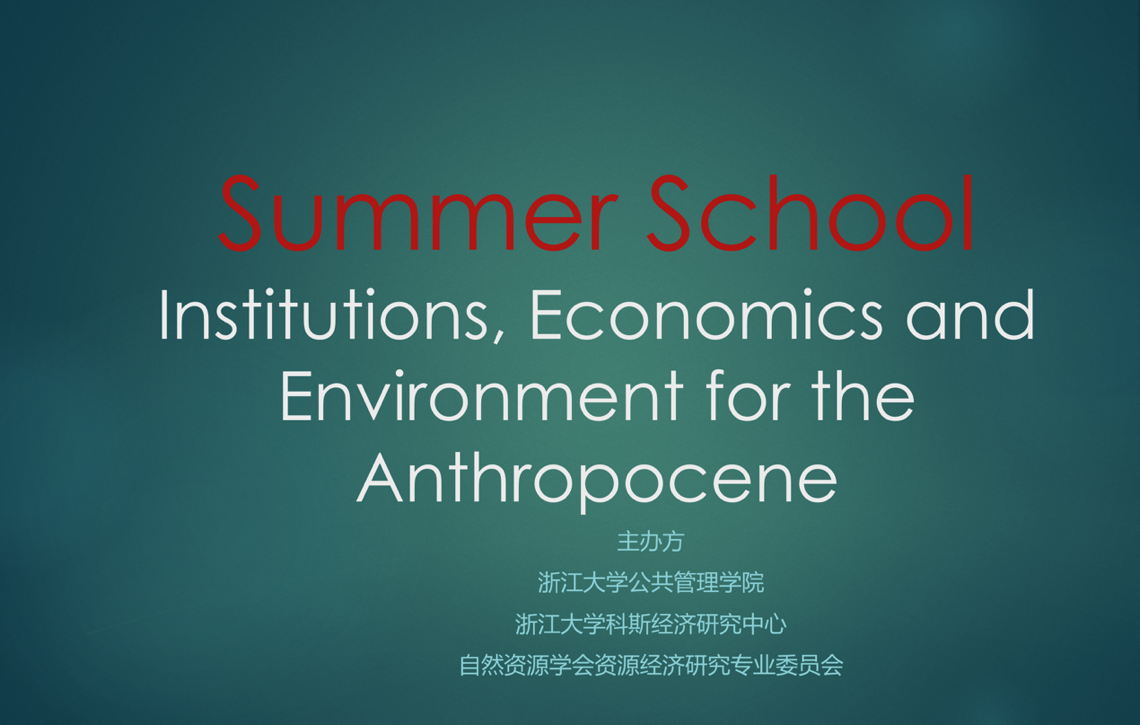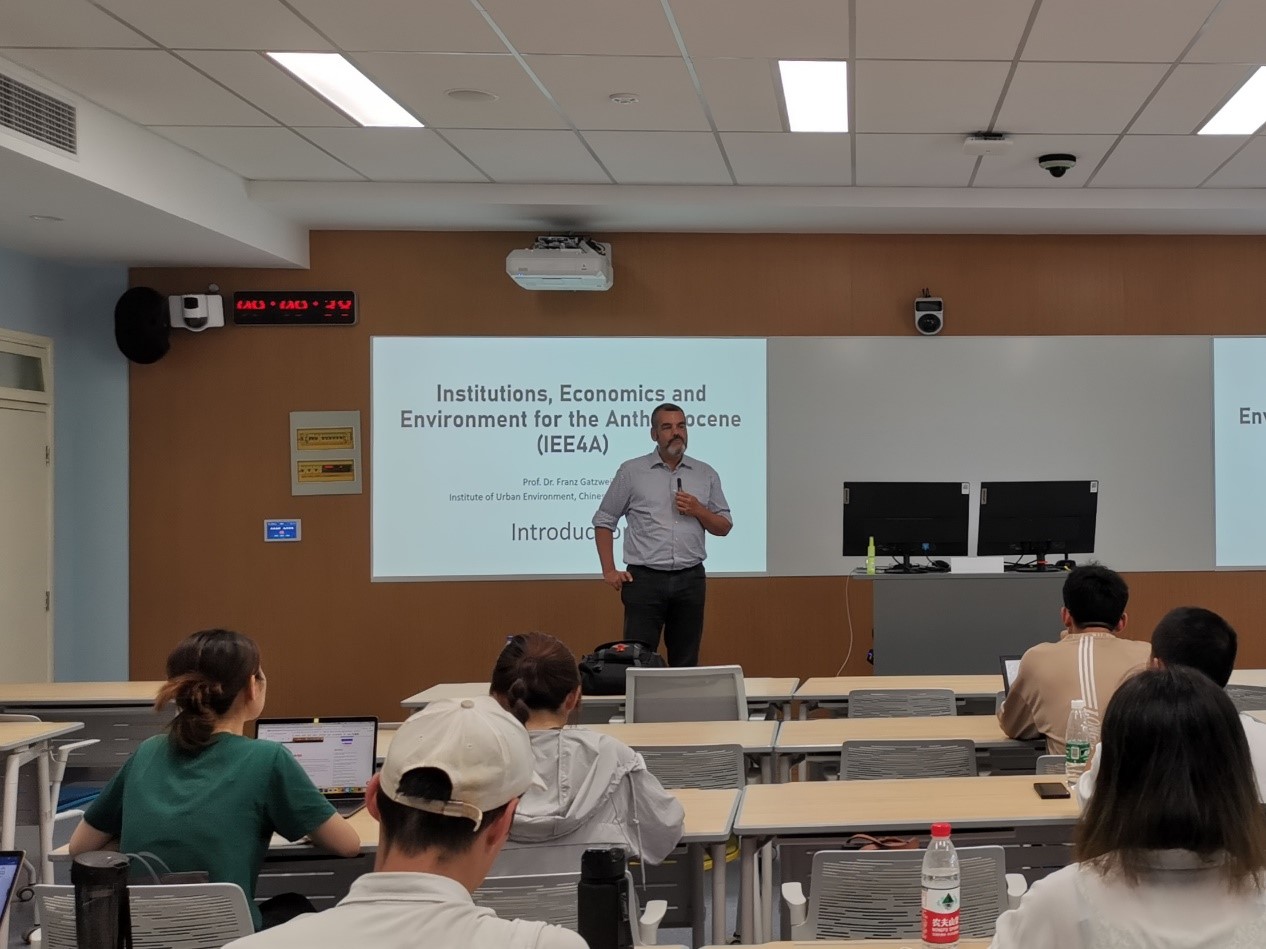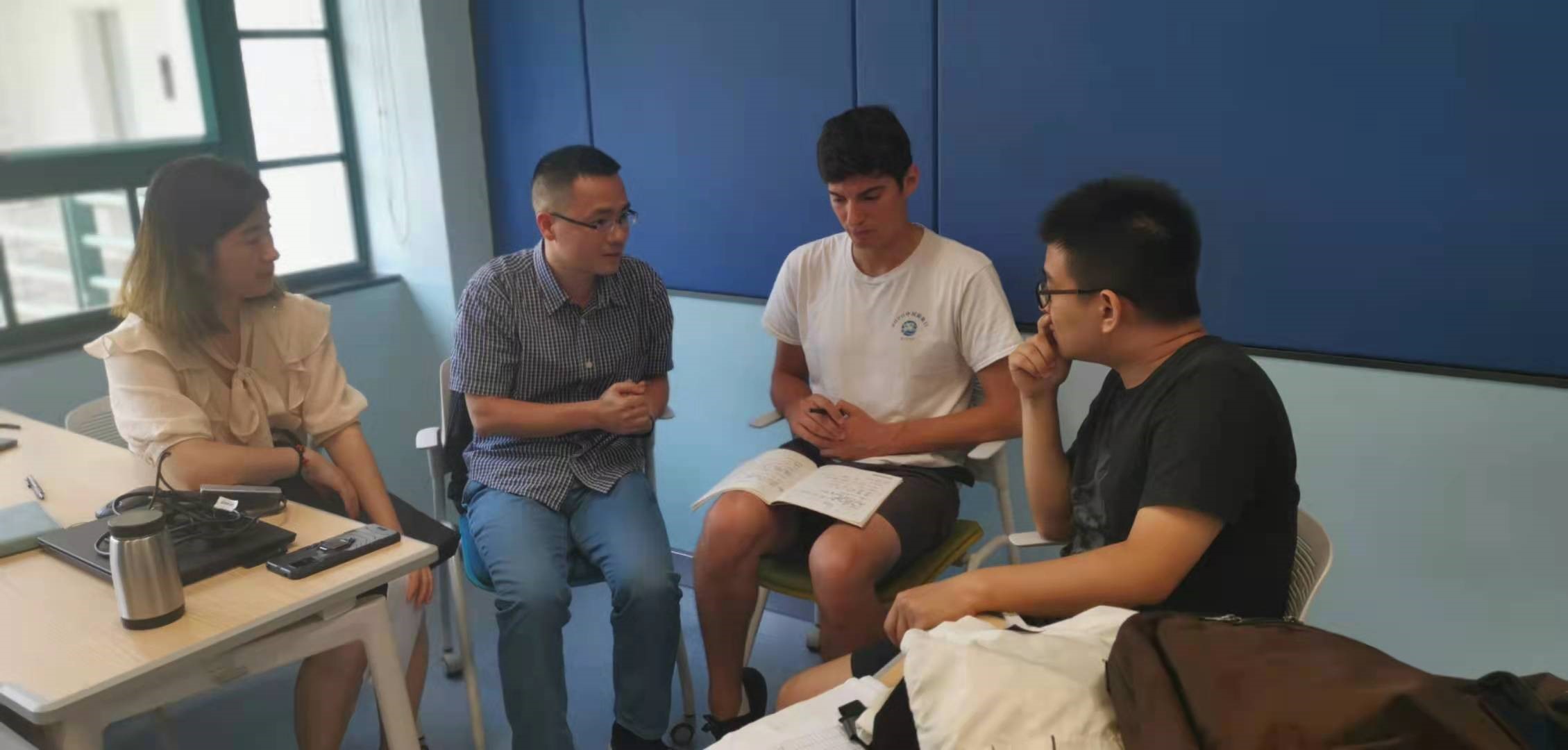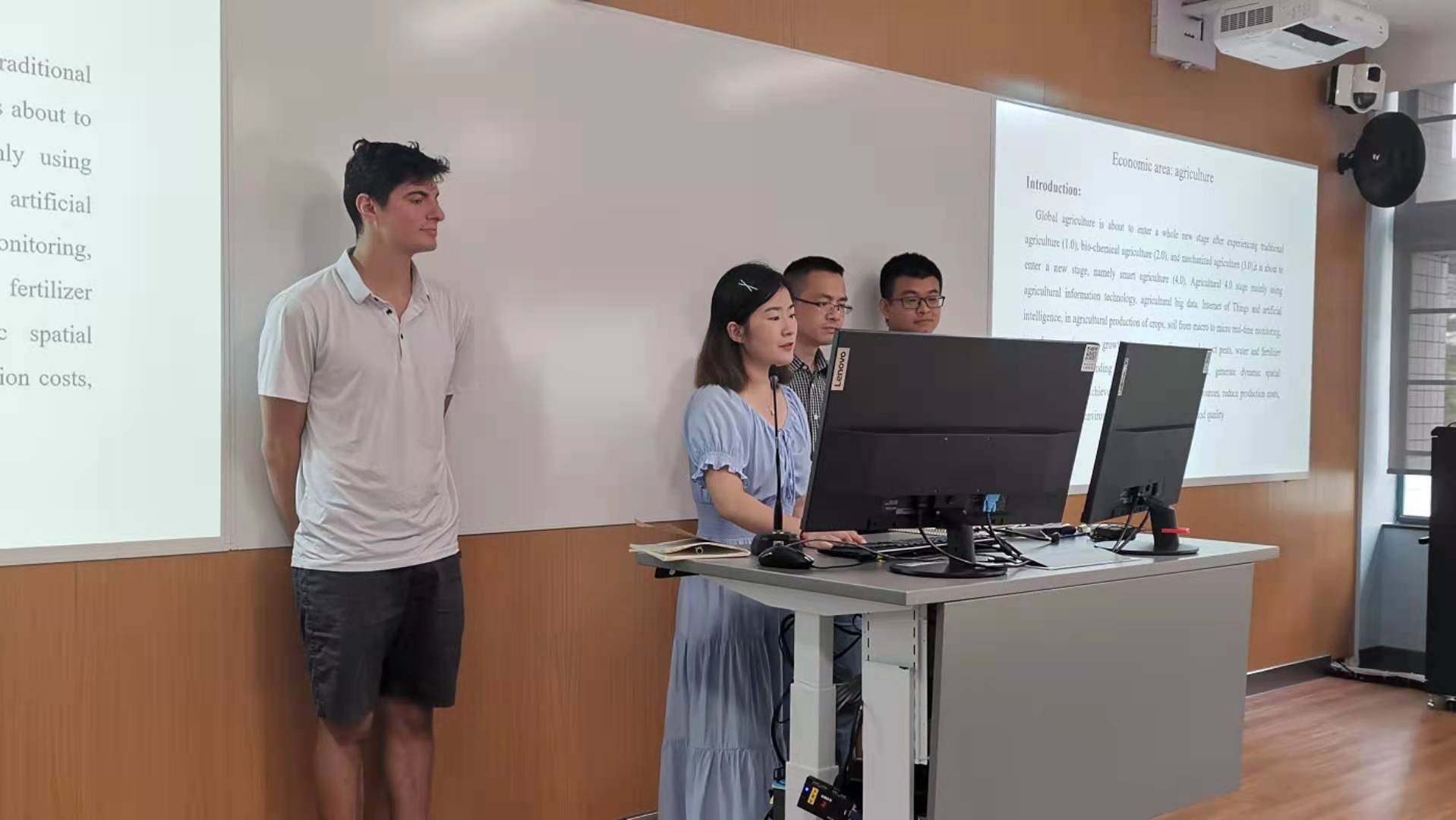
From July 12 to 23, the 2021 Summer Lecture of Overseas Scholars "Institutions, Economics and Environment for the Anthropocene" was successfully held by School of Public Affairs of Zhejiang University. The keynote speaker is Franz W. Gatzweiler. He is the Executive Director of the project Urban Health and Wellbeing: a Systems Approach in the International Council for Science as well as a fellow at the Institute of Urban Environment (IUE), Chinese Academy of Sciences (CAS). Gatzweiler graduated from Humboldt University in Berlin, Germany, with a PhD and professorship (Habilitation) in Agricultural Economics. He has received funding from the German National Research Fund (DFG), the Food and Agriculture Organization of the United Nations (FAO), the AvH, and the VW Foundation to study forest landscapes, biodiversity, poverty and marginalization governance in sub-Saharan Africa and South Asia. He is also a visiting Professor at Ostrom Workshop at Indiana University, USA and a senior research fellow at the Centre for Development Studies (ZEF) at the University of Bonn, Germany.

Professor Tan Rong, vice president of School of Public Affairs, Zhejiang University presided over the opening ceremony of this summer course. Professor Tan Rong expressed his heartfelt thanks to Gatzweiler for his excellent organization and preparation of the course. He also welcomed the students and teachers who signed up for the course. The systematic governance of resources and environment in the context of Anthropocene is an interdisciplinary issue. This course involves not only the knowledge of social sciences such as system, economy and development, but also the knowledge of natural sciences such as ecology and environment. Moreover, the Anthropocene is related to the ethics of human existence, which is also a philosophical topic. Professor Tan Rrong believed this complex, systematic and interdisciplinary course was worth looking forward to.
k course, Gatzweiler showed students and faculty how to understand the formation and evolution of human societies; how to understand the use of human resources and environment as well as the construction of social system; how to understand the governance of the Anthropocene and how to look forward to the ecological generation in the future. From the perspective of understanding complexity as a topic that covers changes in social, economic, and environmental systems, Gatzweiler organized faculty and students to discuss, analyze, and share topics such as moral conflict and resource allocation civilization construction and evolution and Anthropocene expectations. Each day after class, groups of students gathered to conduct further exercises and communicate online with Gatzweiler. At the end of the course, each group made presentations on topics such as the digital economy, urban development, food systems, and cultural differences. Researcher Gatzweiler held in-depth discussions with the students about each group's presentation and awarded certifications to students who successfully pass the evaluation.



During the two-week course, Gatzweiler also communicated with many teachers from the School of Public Affairs in ZJU. On the afternoon of July 15, Professor Zhao Zhirong, dean of The School of Public Affairs, met with Gatzweiler and discussed how to further expand the cooperation network of the School of Public Affairs with the United Nations, countries along the Belt and Road, the European Union as well as other related organizations. On the afternoon of July 17, Gatzweiler had an discussion with Tan Rong, Zhou Yunheng, Yu Hanzhi, Xu Yuanshuo and other teachers about the question of ecosystem services and ecological value research, ecological service value pricing, natural landscape pricing of Xixi Wetland, etc. In their spare time, students also connected with Researcher Gatzweiler. Students exchanged their views with Gatzweiler on contemporary Rural development, historical heritage and folk culture, kinship in China and other topics. Student Zhang kaiwen said, Franz's witty and profound explanation rapidly expanded my theoretical horizon and critical thinking under the issue of Anthropocene, which made me jump out of the existing analytical framework. What's more, through those deep and complex discussions, I got a lot of inspiration.

The Summer Lecture of Overseas Scholars organized by the School of Public Affairs aims to invite well-known overseas scholars in the field of public governance as lecture speakers, and provide a learning, communication and interaction platform for teachers and students in related fields. This Institutions, Economics and Environment for the Anthropocene course not only brought innovative theoretical and practical courses to the faculty and students, but also promoted the interaction between faculty and students. As an academic exchange platform of the School of Public Affairs, the Summer Lecture of Overseas Scholars will continue to create more knowledge exchange chances for teachers and students.


